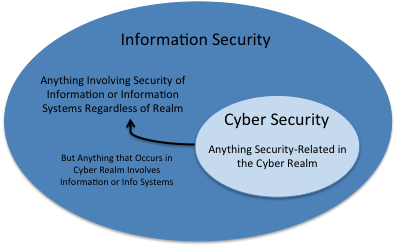A cyber security manager in the U.S. makes an average base pay of about $104,466 per year. In the U.K. the average base salary is £72,500 on average. Cybersecurity professionals are highly demanded due to the constant need for these experts amidst a significant shortage of skilled individuals in the cyber security field.

A career in Cyber Security will offer individuals a wide range of career options. That said, it is unlikely that a cybersecurity professionals’ career will kick-off right away and on a high note unless they have lots of practical skill, experience, and reputation for offering organizations.
As a Cyber Security professional some of the tasks that you will be expected to fulfill include the following:
- Keeping up-to-date with cutting-edge security trends,
- Planning for disaster recovery
- Using advanced analytics tools
- Investigating security alerts
- Providing incident response
- Maintaining effective cyber security
Challenges in the cybersecurity profession
Maintaining effective cyber security fundamentally means minimizing and mitigating the effects of cyber-attacks. Such work is most effectively done by building a strong foundation and then growing a cybersecurity technology stack on this strong foundation. Creating such a foundation is a challenge in cybersecurity.
Another massive challenge that cybersecurity experts face is that when additional cybersecurity applications from different manufacturers start being stacked on each other, they do not operate seamlessly because they are not always 100% compatible with each other or the IT infrastructure. Experts intending to build a strong Cyber Security career will seek to identify such gaps and propose suitable action to mitigate risk related to compatibility and interoperability while ensuring that the organization is safe from cyber-attacks.
The bottom line is that building a robust cybersecurity career requires:
- A solid cybersecurity foundation based on proper training and practical skill
This involves training on technologies, processes, and measures used to mitigate the risk of cyber-attacks (both internal and external threats) that either deliberately or unintentionally seek to exploit systems, networks, and technologies. The measures taken are based on a three-pronged approach that addresses people, processes, and technology.
- On-the-job experience and a strong reputation built on a successful track record that can be used to develop and maintain a robust cyber security posture.
An organizations strong/credible cybersecurity posture relies on a systematic approach that encompasses:
- Information security
- Application security
- Network Security
- Operational security
- Disaster recovery and business continuity planning
- End-user education
Since security in organizations is a sensitive area, the two criteria listed above are essential for organizations because cybersecurity is not something, they want to take any chances on. Organizations want to be confident in who they hire. As such, starting a career in cybersecurity is not a direct path for most candidates and will often require the individual to start from a different path. In most cases, this path starts from a general IT position like a Field Engineer role or IT Technician.
However, to build on credibility and reputation even further, ITIL or IT Infrastructure Library is essential. Below, is a background on ITIL including why you need an ITIL certification, prerequisites for certification, and job prospects.
What is ITIL?
ITIL is a framework that defines a specific set of processes and functions (such as security) that are set up across five key stages of the service lifecycle including; Service Strategy, Service Design, Service Transition, Service Operation, and Continual Service Improvement. The ITIL framework encompasses the improvement of existing services as well as the deployment of new ones.
ITIL is the most popular, widely adopted and globally recognized application of IT Service Management (ITSM). ITSM’s scope is on the deployment, management, and delivery of IT service delivery with a particular focus on processes, activities, and policies in an organization.
Why go for ITIL certification
To understand the context of cybersecurity within the broader scope of information security, and more specifically the efficient and effective delivery of cybersecurity services with a focus on processes, activities, and policies in an organization, ITIL is a must.
Although ITIL explicitly addresses security in only the Service Design stage of the service lifecycle, it provides the context of security within the much broader scope of efficient and effective creation and delivery of services that affect an organization’s stakeholders including customers, employees, suppliers, etc.

Figure 1: Cyber security within information security
In short, ITIL will provide a service context to cybersecurity and information security within an organization. Such context will allow a person with ITIL and Cyber Security training to structure security operations as a component of the standard set of IT services.
Essentially, with an ITIL and Cyber Security background an individual will be able to do the following:
- Set up security using the five service lifecycle stages from strategy and design, to transitioning, operations and continual service improvement.
- Implement security services including incident response, security testing, monitoring, and alerts, using ITIL service processes.
- Integrate security services to other services in an organization
- Maturity assessment and resource planning of cybersecurity and other services
- Service level management including how fast threats are noticed and dealt with
- Availability management including how to deploy available resources to manage and deal with cybersecurity threats
Prerequisites for ITIL certification
If you have a cybersecurity career already, or if you seek to pursue one, then you are more than likely already eligible for an ITIL certification. ITIL is ideal for service delivery professionals but is also best suited for IT professionals as well.
Job prospects
Both ITIL and Cybersecurity are applicable in any organization and across borders. As such, job prospects are even higher for cybersecurity professionals with an ITIL certification because ITIL affords individuals even more credibility and fame. In short, candidates pursuing a cybersecurity career will very likely raise the ranks a lot faster than those without an ITIL certificate.
Parting shot
Implementing information security as a service in organizations is critical for building a career in cybersecurity because it demystifies and broadens the scope of decision making. At the end of the day, professionals with a cybersecurity and ITIL background are able to prove their value in organizations because they benefit the organization by providing better service while spending less to meet business objectives that bring about transformation. As such, ITIL is a must for your Cyber Security career.
You can also stay updated by subscribing to iTechCode.